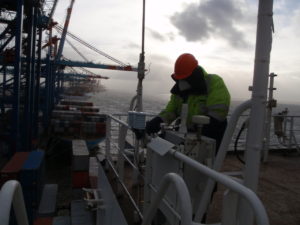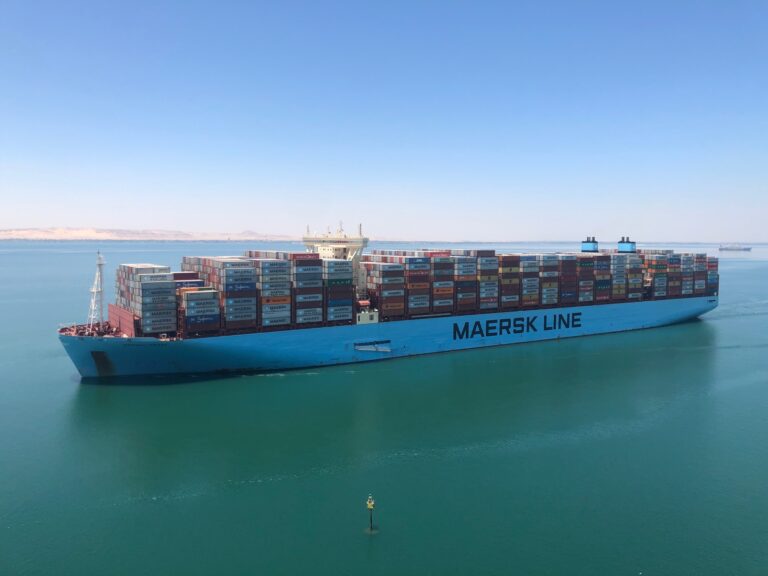In the largest project of its kind, A.P. Moller – Maersk (Maersk) has installed automated weather stations (AWS) on 50 of its ocean vessels, in doing so creating a network of weather and climate observations.
All collected data is transmitted live to the National Meteorological Service of Germany, DWD, supporting their weather forecasts and climate science.
Weather and sea state observations have been gathered and shared on a systematic basis for more than 150 years. They provide essential data on meteorological conditions at sea for weather forecasts and, over long-time scales, help climate scientists understand climate change. Ship observations, alongside other ocean, land-based, and satellite observations, are used in global and regional climate analyses, and are combined with atmospheric-ocean climate models, that depict the evolution of our environment. These observations also help to ensure safety at sea by allowing better forecasting of storms and other extreme ocean-related events for seafarers and nations.

Maersk and DWD have collaborated on the project since 2019 with the German service providing the 50 systems being installed on the vessels.
“There is no doubt that climate change is one of the biggest challenges facing the global community and it impacts our business as well as the societies and customers we serve and partner with to enable trade,” said Aslak Ross, Head of Marine Standards at Maersk. “We have an ambitious strategy for our business to achieve net zero greenhouse gas emissions in 2040, and we are proud to have our vessels and crews help researchers in gaining a better understanding of this key global challenge and the impact it has on our surroundings.”
By implementing AWS, the vessels can deliver precise high-quality and standardised data in real-time giving DWD useful insights about the current meteorological situation at sea. The data provided is shared globally with all members of the World Meteorological Organization (WMO).
“As a global container logistics company, we are moving millions of containers across the oceans every year, and weather routing is extremely important to ensuring safe travel of our crew and our customers’ cargo,” continued Ross. “If we can help facilitate even marginal improvements to the quality of weather routing services, these will be important levers in our constant efforts to improve the safety of our crews and assets.”







